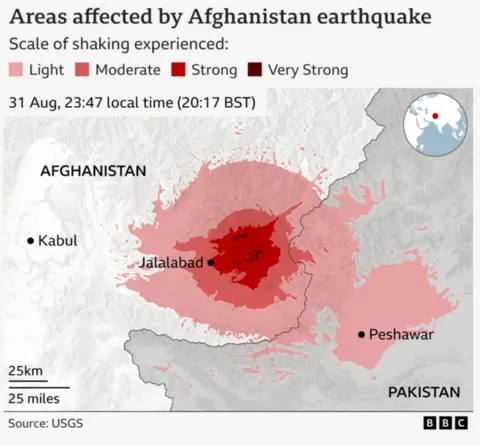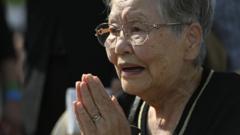Eighty years have passed since the liberation of Bergen Belsen, but the memories of horror and suffering remain vivid for survivors and their descendants. On a sunny Sunday, more than a thousand individuals, including survivors, families, and dignitaries, gathered to reflect on the tragic events of April 1945. As British and Canadian troops entered the camp without encountering resistance, they were confronted with a harrowing sight of decay and despair.
Reports indicate that approximately 13,000 unburied corpses languished amid the living, with around 60,000 emaciated survivors scattered throughout the camp. The event provided a platform for survivors such as Mala Tribich, now 94, to share their chilling experiences. "Belsen was a place of skeletons," she recounted, highlighting the ghastly scene of guards dragging corpses.
This year, survivors commemorated their personal losses and collective trauma as they listened to testimonies of horror, echoing the sentiments of British soldier Michael Bentine, who once expressed that Belsen represented an "ultimate blasphemy." The camp remained a notorious symbol of Nazi brutality, having retained its grim physical evidence where others had been destroyed.
Unlike many other camps, Bergen Belsen housed survivors who endured horrific conditions characterized by malnutrition and disease, leading to a staggering death toll that continued even after liberation. Within the final months of World War II, an alarming number of victims—including Dutch diarist Anne Frank and her sister—succumbed to suffering.
Amidst this grim past, the commemoration also honored the lives lost. Representatives from various backgrounds, including the Jewish Military Association, laid wreaths in remembrance. Among the attendees was Deputy Prime Minister Angela Rayner, who paid tribute alongside UK Chief Rabbi Sir Ephraim Mirvis, who recited a psalm.
Despite the verdant landscape that now covers the site of Belsen, echoes of the past linger, with a visitor center and memorial stones serving as reminders of those lost. One grave marker poignantly states, "Hier ruhen 5,000 toten" – “here rest 5,000 dead.” The solemn recognition of Bergen Belsen's history continues to invoke reflections on human rights and the shadows cast by past atrocities.




















